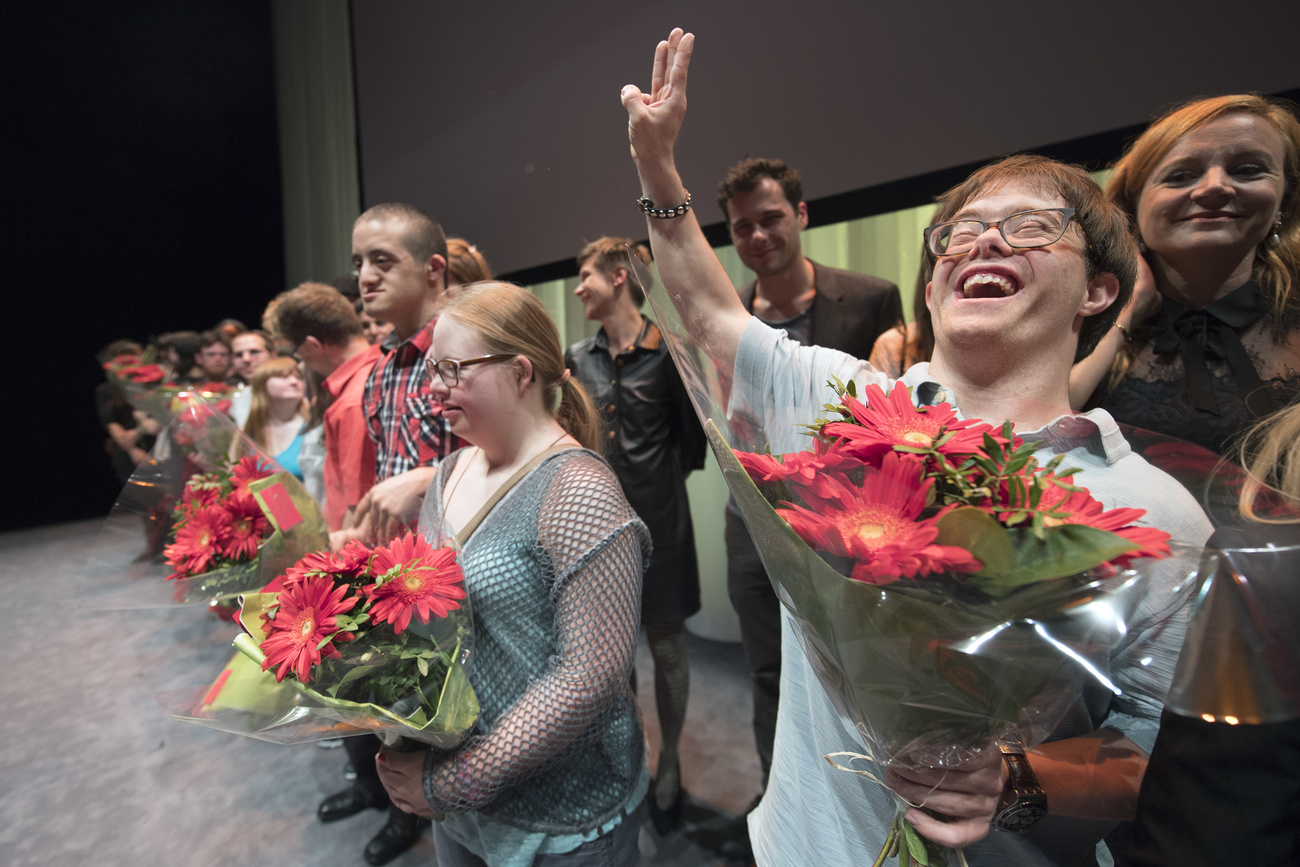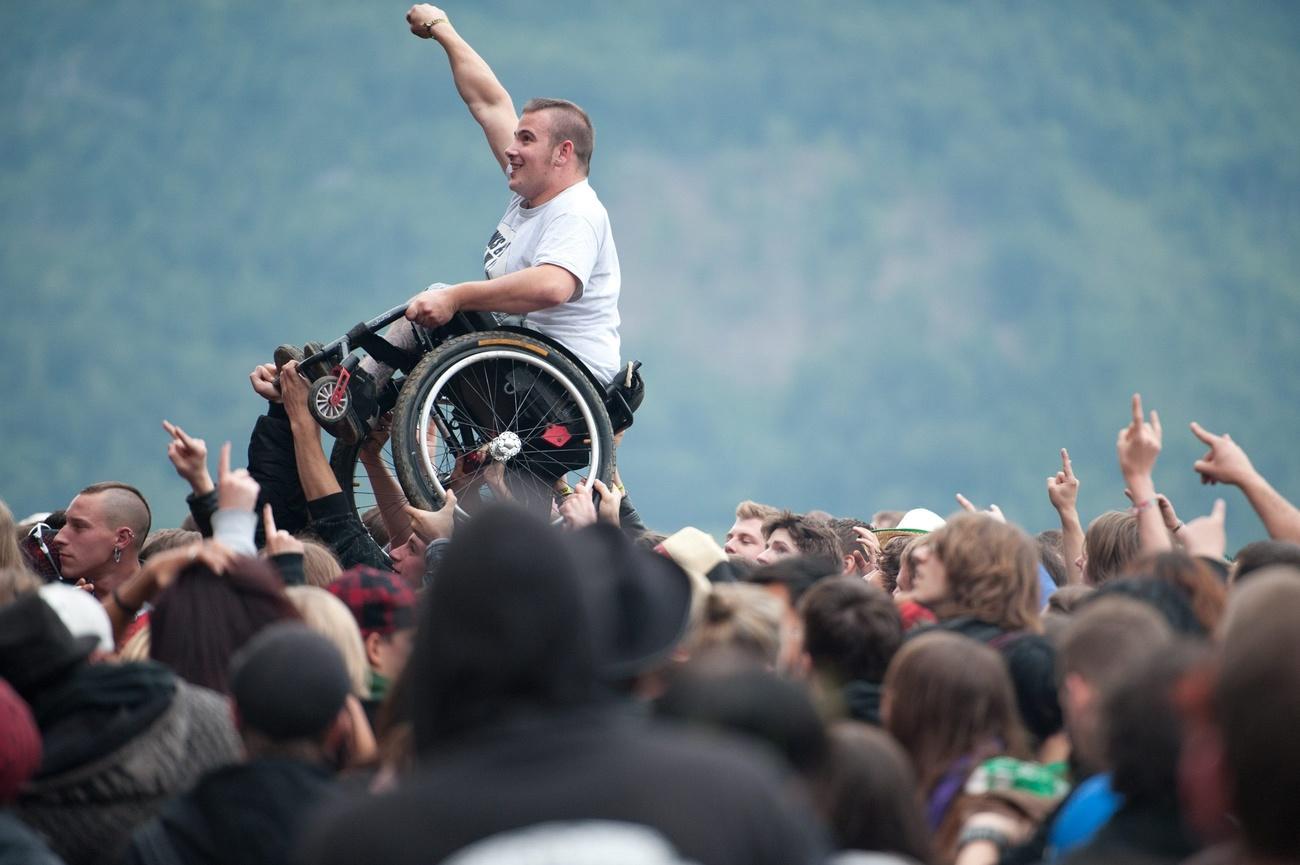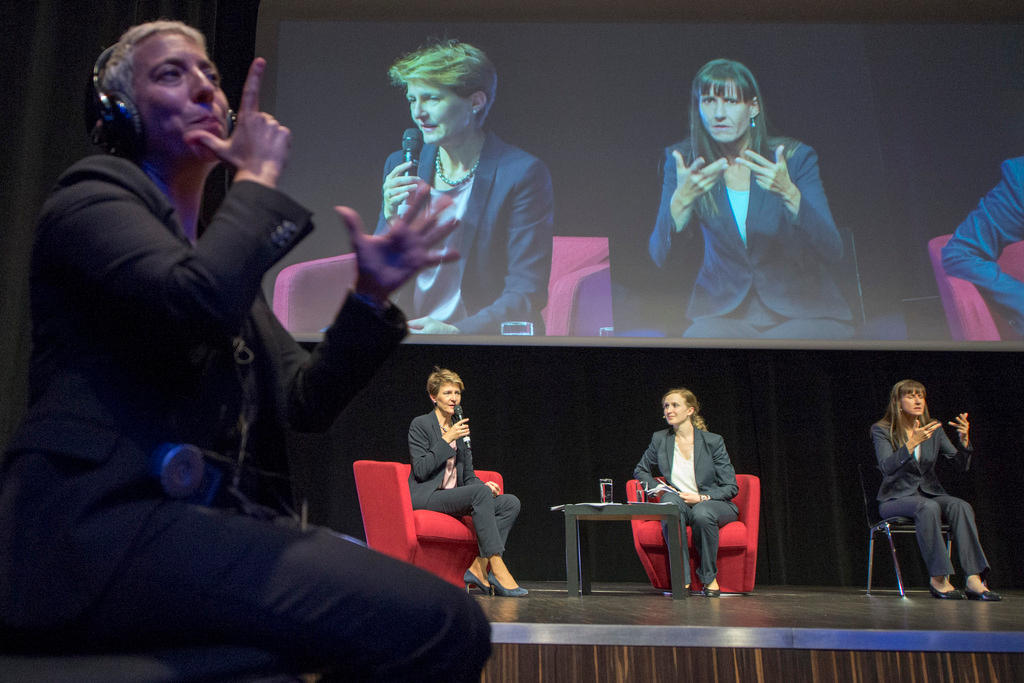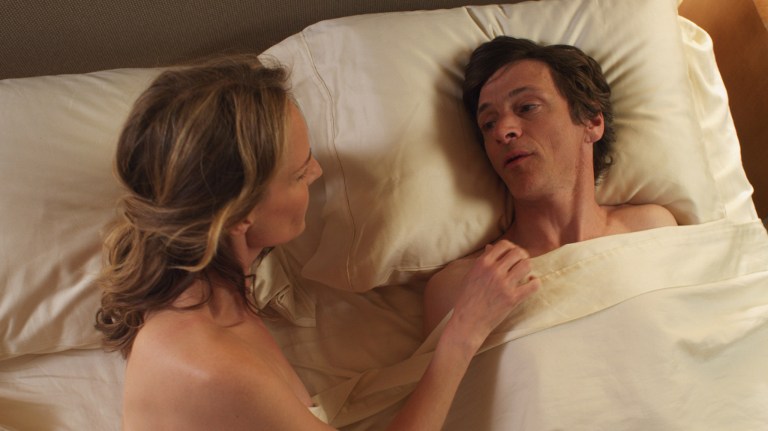March ballots: some 1,200 physically and mentally disabled will vote for the first time

On March 7, people with severe mental or physical disabilities living in canton Geneva will be able to vote. This is a milestone for Switzerland. But the process isn’t easy for everyone involved.
Sébastien Martone still can’t make much sense of the voting card, ballot papers, and information booklets lying in front of him on the living room table in the Geneva neighbourhood of Chêne-Bougeries. Voting is still an abstract concept for this 25-year-old autistic man. On Saturday he will be casting his first-ever vote.

More
Geneva grants full rights to mentally disabled citizens
Until this vote Sunday, Martone and other severely physically and mentally disabled people under full guardianship were excluded from voting, both at the at federal and cantonal levels. This is about to change. In the canton of Geneva they will be allowed a political voice, after the local population decided to grant those needing comprehensive assistance the right to vote. In the November 2020 round of ballots, the canton said “yes” with a 75 % majority. This is a milestone for Switzerland. Geneva is the first Swiss canton to introduce such a reform. People under guardianship can request their political rights in a handful of other cantons, but don’t have the systematic right to vote. Other countries around Europe are also implementing similar reforms to their electoral systems.
Excluded at the national level
This means that in Geneva, around 1,200 people will now be able to theoretically exercise their political voice for the first time – albeit only at the municipal and cantonal level. “Partial rights” is written on Sébastien’s voting papers. On the top half of his ballot paper, where the federal proposals are written, the “Yes” and “No” boxes are blacked out – unlike for his 28-year-old brother Sam, who has no disabilities. Nevertheless, Sébastien Martone is pleased that he will be able to vote for the first time on March 7, at least at the cantonal level: “I’m like everyone else!”
Voting rights for persons with disabilities are enshrined in the UN Convention on the Rights of Persons with Disabilities, which Switzerland ratified in 2014. Since, organisations such as Inclusion Handicap or Insieme Switzerland have been campaigning for this convention to be applied. “That alone is not enough. Supporting measures are needed so the people concerned can actually use their rights,” said Jérôme Laederach, managing director of the NGO Fondation Ensemble and president of INSOS Geneva, the umbrella organisation of service providers for people with disabilities. The first projects already exist: residential homes have organised courses on civil rights, Geneva City Hall has offered guided tours of its facilities, and Insieme Switzerland has published a guide to Swiss politics and voting in simple language.
Martone agrees such support would be helpful. He knows the names of local politicians from their campaign posters in the streets, which he has read carefully. But he doesn’t know who to vote for. He also finds some of the vote language complicated, for example: “Do you accept the law on compensation for loss of income in connection with the June 25, 2020, measures to combat the coronavirus?” His mother Marylou Martone has helped him sort out the paperwork and explained the issues at stake. It is important to her that her son exercises this new right. “I am proud that Sébastien can also vote now,” she said. “Even if he were to put in a blank ballot this time – he has that right, too.”
‘A big heart is not enough’
When he was three, Sébastien was diagnosed with autism by a child psychiatrist. Since then, his mother has experienced the importance of politics and rights first-hand. She had to fight for his rights, for a place at a school, for support. “It’s not enough to have a big heart,” she said. Even if Sébastien has made a lot of progress in recent years and can do many things independently, he still cannot live entirely on his own. “I even took part in demonstrations for my son’s rights,” Martone continued. She wants to pass this political awareness on to her son and inform him as objectively as possible when he votes.
She understands the concerns that people with disabilities could be influenced by relatives or guardians during a vote. “Can’t that happen in other families as well?” she questioned. Jérôme Laederach agrees. Influence cannot be ruled out anywhere. But first and foremost, it is about equality.
Even if very few people with disabilities actually go to the polls on March 7, that does not detract from the benefits of the right, he argues. Laederach sees it much more as an opportunity to raise awareness – and improve society. “Instead of a person not voting because they don’t understand the process, we’d better do everything we can to make it understandable for everyone.” Laederach is convinced that this would also benefit other people who find voting complicated.
Translated from German/swissinfo.ch

In compliance with the JTI standards
More: SWI swissinfo.ch certified by the Journalism Trust Initiative













You can find an overview of ongoing debates with our journalists here . Please join us!
If you want to start a conversation about a topic raised in this article or want to report factual errors, email us at english@swissinfo.ch.